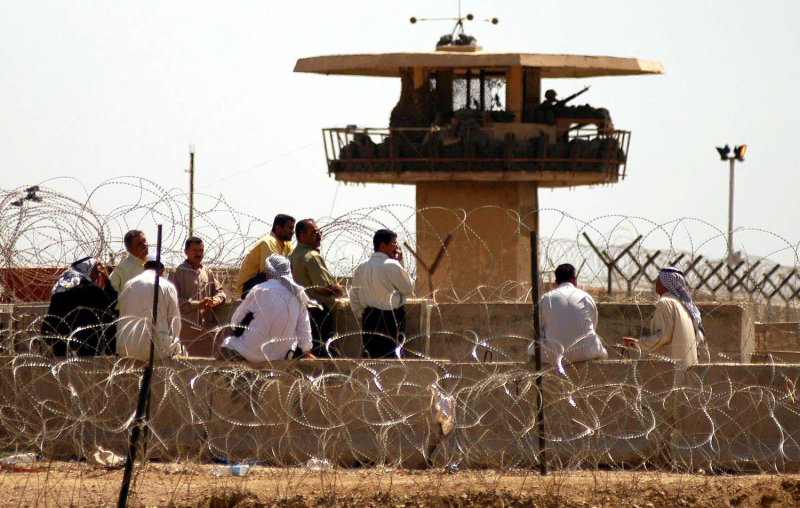Hundreds of Iraqis gather outside of Abu Ghraib prison in Baghdad on May 4, 2004, looking for information about their relatives. (UPI Photo/Hugo Infante) |
License Photo
WASHINGTON, Oct. 4 (UPI) -- The U.S. Supreme Court Monday asked the Obama administration for advice on whether it should hear a case involving Abu Ghraib prison contractors.
A group of Iraqi men who said they were tortured and otherwise abused are trying to bring a damages suit against private contractors who worked for the U.S. government at the prison and other facilities in Iraq.
But a federal appeals court ruled 2-1 that the contractors cannot be sued for alleged murder and torture under the Alien Tort Statute, and that they were protected by a "battlefield pre-emption" doctrine "that extends derivative sovereign immunity to contractors."
CACI International Inc. and Titan Corp. provided interrogation and translation services under government contract at the Abu Ghraib prison. The Iraqi men's brief says "CACI and Titan employees repeatedly
punched and kicked them; beat them with sticks, guns and cables; slammed them into cell walls; raped, sexually assaulted, and sexually humiliated them; subjected them to electric shocks; deprived them of food and sleep; threatened them with dogs; shackled them in painful positions for hours; urinated on them; confined them in coffin-sized boxes; exposed them to extreme heat and cold; forced them to watch the beating and rape of other prisoners, including their family members; and threatened them with rape and execution."
Several "were tortured into unconsciousness; several were murdered," the Iraqis' brief says.
The Iraqi men said the U.S. military lacked the power to court-martial the contractors, though it did court-martial some soldiers "who conspired with them."
The Iraqi plaintiffs say the appeals court ruling creates "a novel 'battlefield pre-emption' doctrine that places the more than 200,000 contractor employees supporting the military in Iraq and Afghanistan wholly outside the existing (civilian damages) system."















